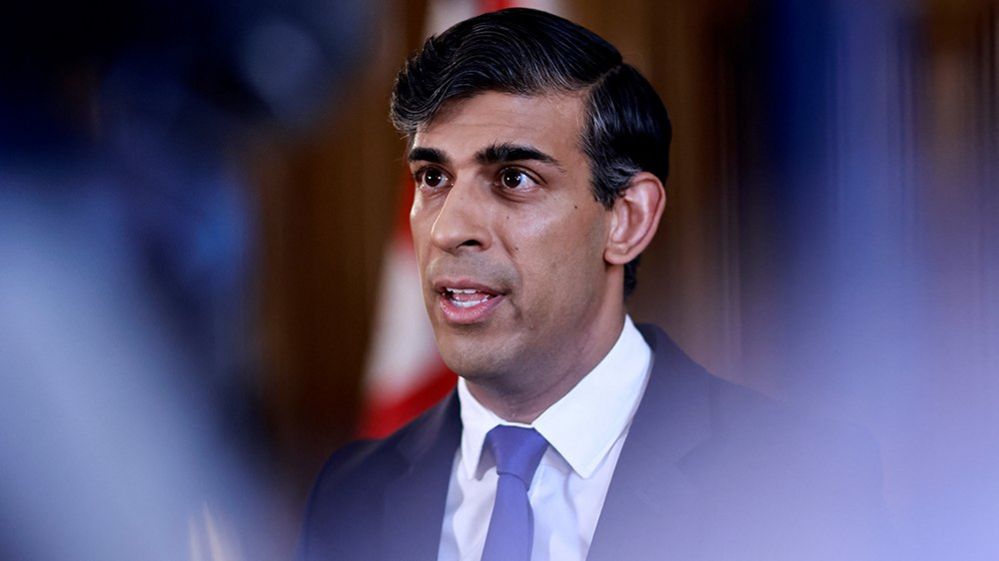ARTICLE AD BOX
 Image source, PA Media
Image source, PA Media
By Chris Mason
Political editor, BBC News
Unless the opinion polls shift and shift quite a bit, Rishi Sunak knows his time left as prime minister might be running out.
But he is the instigator of a smoking plan with substantial, cross-party political support, which looks set to herald a sizeable social change.
And that cross-party support suggests it's an idea with greater political longevity than he might have, because Labour wouldn't scrap it if they win the election.
In other words, whatever happens, it is what some in politics call a legacy.
As I wrote here when Mr Sunak first set out his plans last autumn - in what he described at the time as "the biggest public health intervention in a generation" - this is a government seeking to nudge, or elbow, a societal shift along: the near end of smoking.
On Tuesday, Health Secretary Victoria Atkins said she hopes creating a smoke free generation will "spare thousands of young people from addiction and early death as well as saving billions of pounds for our NHS".
What was once mainstream is already marginal. Now the attempt to near-eradicate it, over time.
This isn't the end of this discussion: what we have seen so far are the early parliamentary stages. There is more to come before it becomes law.
So that is the big picture, potential social change stuff. What about the politics?
Nearly 60 Conservative MPs voted against Mr Sunak's idea.
Yes, they had a free vote - they weren't told how to vote - but they defied him nonetheless. The cabinet minister Kemi Badenoch among them.
Another 100-ish abstained. The cabinet minister Penny Mordaunt among them.
A source close to Ms Mordaunt told me that she abstained because "she was not a supporter of the bill. She has many objections to it. The practicality of it. The implementation and enforcement of it. But being a serving cabinet minister she thought voting against it would look more confrontational and posturing than abstaining would have been."
Who could that possibly be a dig at? Ah, Kemi Badenoch.
And what do Ms Mordaunt and Ms Badenoch have in common? A splash of ambition.
They are both talked up by some as future Conservative leaders.
When you look at the numbers, nearly half of Conservative MPs couldn't bring themselves to endorse one of their leader's flagship ideas of the last six months.
Which tells you something about the fractious nature of the Conservative parliamentary party, although not a lot that wasn't pretty clear to the regular observer already.
Labour are already gleefully talking up that it is a good job they backed the idea or Mr Sunak would have lost.
And they are also publicly pondering what those opponents might do once the chance arises to change the ideas, to bolt on amendments.
But then again they would be defeated if those in favour keep backing the plan as it is.
When governments manage to latch on to a plan which goes with the grain of where a society is already heading, the might of the law can shove it along profoundly and, probably, permanently.
This idea - for now at least - looks like it might be one of those.
And, for all his political troubles, it is Mr Sunak who is its author.

 9 months ago
30
9 months ago
30








 English (US) ·
English (US) ·